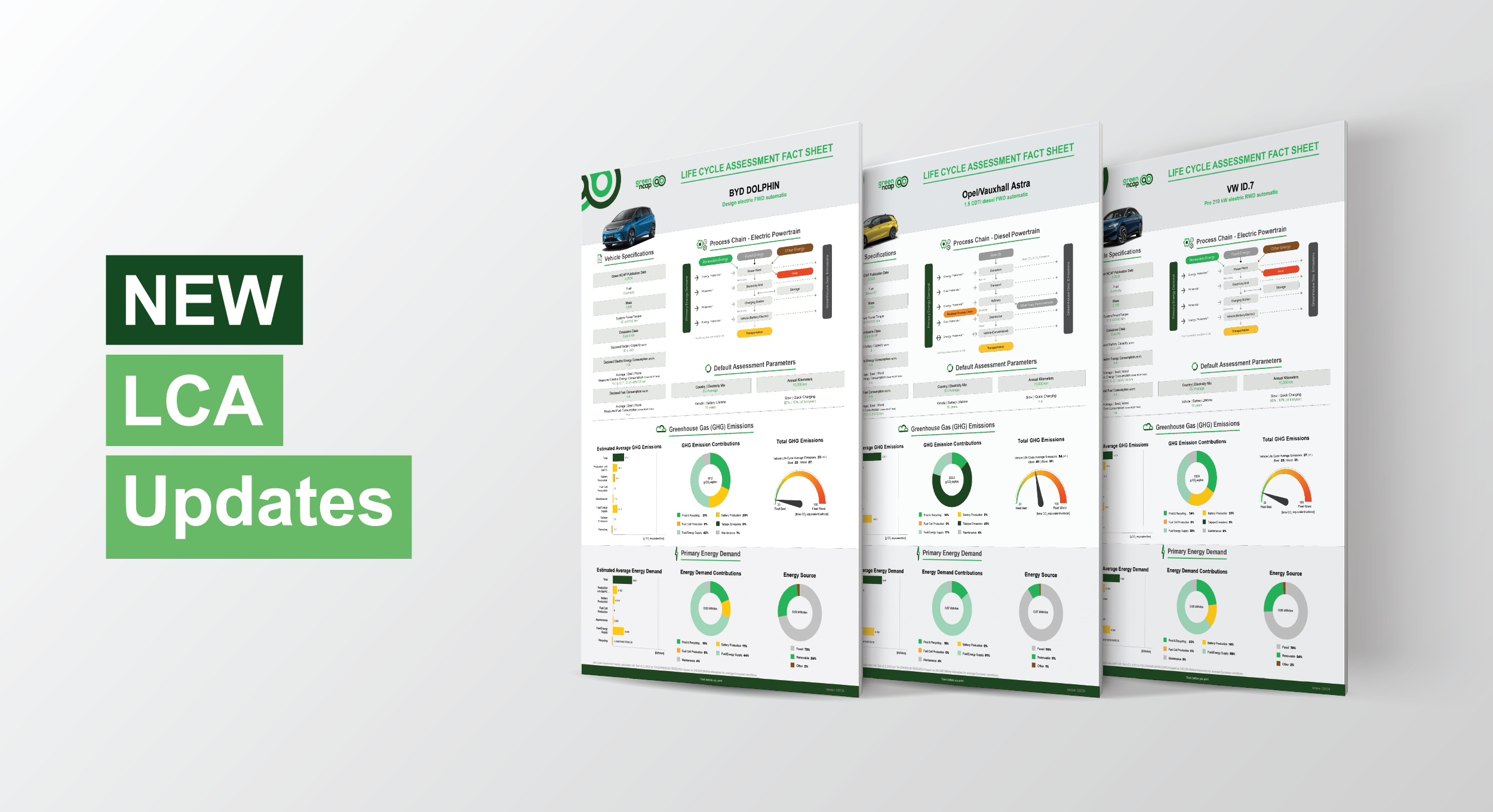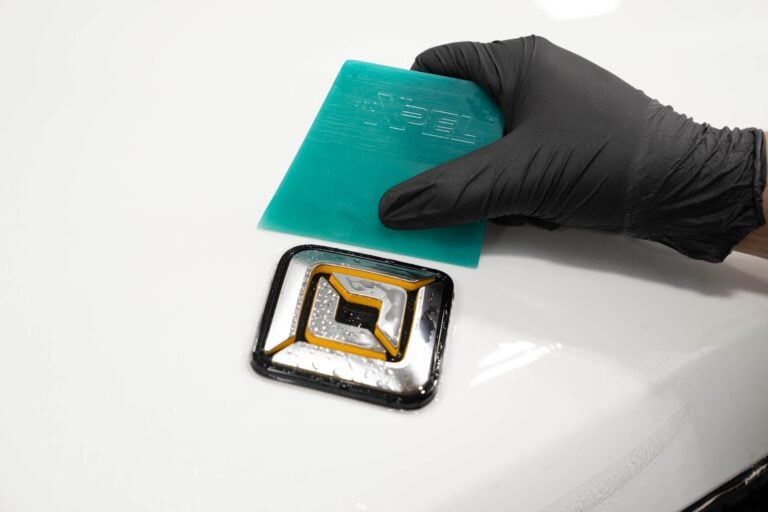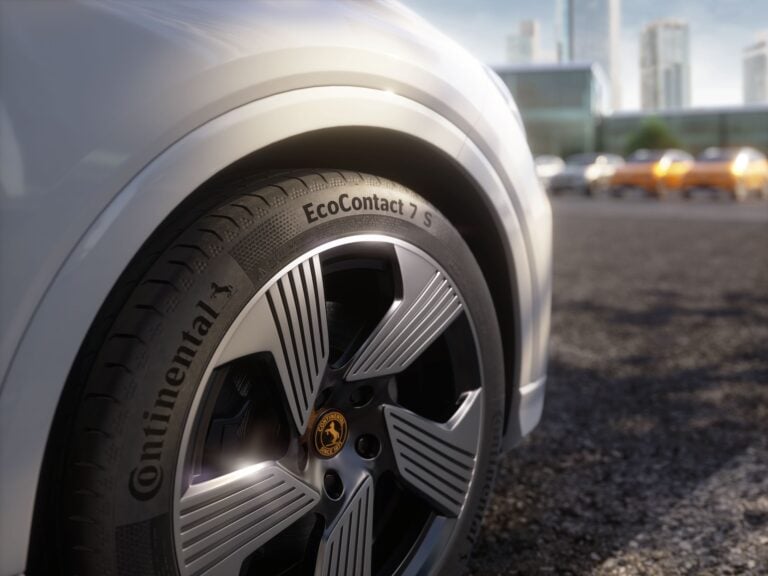Sign up for our popular daily email to catch all the latest EV news!
Green NCAP‘s recent update to its Life Cycle Assessment (LCA) data enhances the understanding of environmental impacts for electric vehicles (EVs) and plug-in hybrids. This update includes expanded data coverage, reflecting the dynamic automotive industry and energy sector changes.
Key Highlights:
- Expanded Data Coverage: Includes more countries and fuel types, with updated information on battery production and biofuel mixes.
- Decreased Emissions: Battery production emissions have decreased by approximately 16%, and electricity emissions are projected to drop by 26% by 2039.
- Lower Carbon Footprint: The average battery electric vehicle’s total carbon footprint has reduced by about 15%, saving 4.8 tonnes of CO2 over its lifetime.
- Biofuel Improvements: FAME fuel (Biodiesel) will contain more used cooking oil and less palm oil by 2050, lowering lifetime emissions.
- LCA Methodology: Provides a comprehensive cradle-to-grave emissions estimate, enabling fair environmental assessments and better vehicle comparisons.
Green NCAP’s enhanced LCA data demonstrates significant reductions in the life cycle carbon footprint of electric and plug-in hybrid vehicles. The improved data reflects ongoing sustainability efforts, particularly in battery production and energy supply.
Decreased Emissions and Improved Efficiency
Battery production emissions, measured in kg CO2-equivalent/kWh capacity, have reduced by around 16% due to economies of scale and sustainability initiatives by manufacturers. Projections for electricity emissions in Europe show a 26% decrease by 2039, driven by policies like Fit for 55. These changes have led to a reduction in emissions for the average battery electric vehicle by about 20 grams CO2-eq./km, equating to a 15% reduction in total carbon footprint and a saving of 4.8 tonnes of CO2 over each vehicle’s lifetime.
Biofuel Composition Changes
The biomass mix of biofuels is also evolving. FAME fuel (Biodiesel) is expected to contain 13 percentage points more used cooking oil and 16 percentage points less palm oil by 2050, significantly lowering the lifetime emissions of this fuel.
Comprehensive LCA Methodology
LCA is a methodology that estimates all emissions associated with the production and use of a specific product from cradle to grave. This method is essential for producing fair environmental assessments of transportation systems. Green NCAP’s updated data better reflects the current energy supply and batteries on the market, delivering more realistic results using Green NCAP’s actual test consumption measurement data. The update has been praised for its reliability and validity, setting itself apart from other LCAs available.
Collaboration with Ricardo
Ricardo, a global consultancy and leader in vehicle life-cycle assessment, assisted Green NCAP in this update by providing data projections for electricity supply in European countries. These projections are regarded as high quality and transparent, contributing significantly to the LCA data update. Ricardo has also participated in Green NCAP industry expert stakeholder meetings, offering advice and feedback on the ongoing development of Green NCAP’s methodology.
Expert Opinions
Nikolas Hill, Ricardo Technical Director, stated, “We appreciate Green NCAP’s approach to LCA with a focus on providing authentic data and customer usability. It is important that LCA data evolve to remain relevant and in step with industry, so we strongly support this update. We look forward to seeing its results.”
Dr. Gerfried Jungmeier, JOANNEUM RESEARCH leading scientist on the LCA tool project for Green NCAP, commented, “We need a kind of scenario for all the European countries with the same assumptions. That was one of the key reasons we took the data from Ricardo. They have a very consistent scenario for each of the 27 European countries based on technical feasibility and political expectations.”
Dr. Aleksandar Damyanov, Green NCAP Technical Manager, highlighted, “The LCA of vehicles has been an essential part of the information Green NCAP offers. However, continual data updates are necessary to stay aligned with industry developments and changing energy supply trajectories. Green NCAP’s LCA, we believe, provides improved standardization, more realistic and relevant results, consumer-operability, and good comparison abilities.”
Sign up for our popular daily email to catch all the latest EV news!








